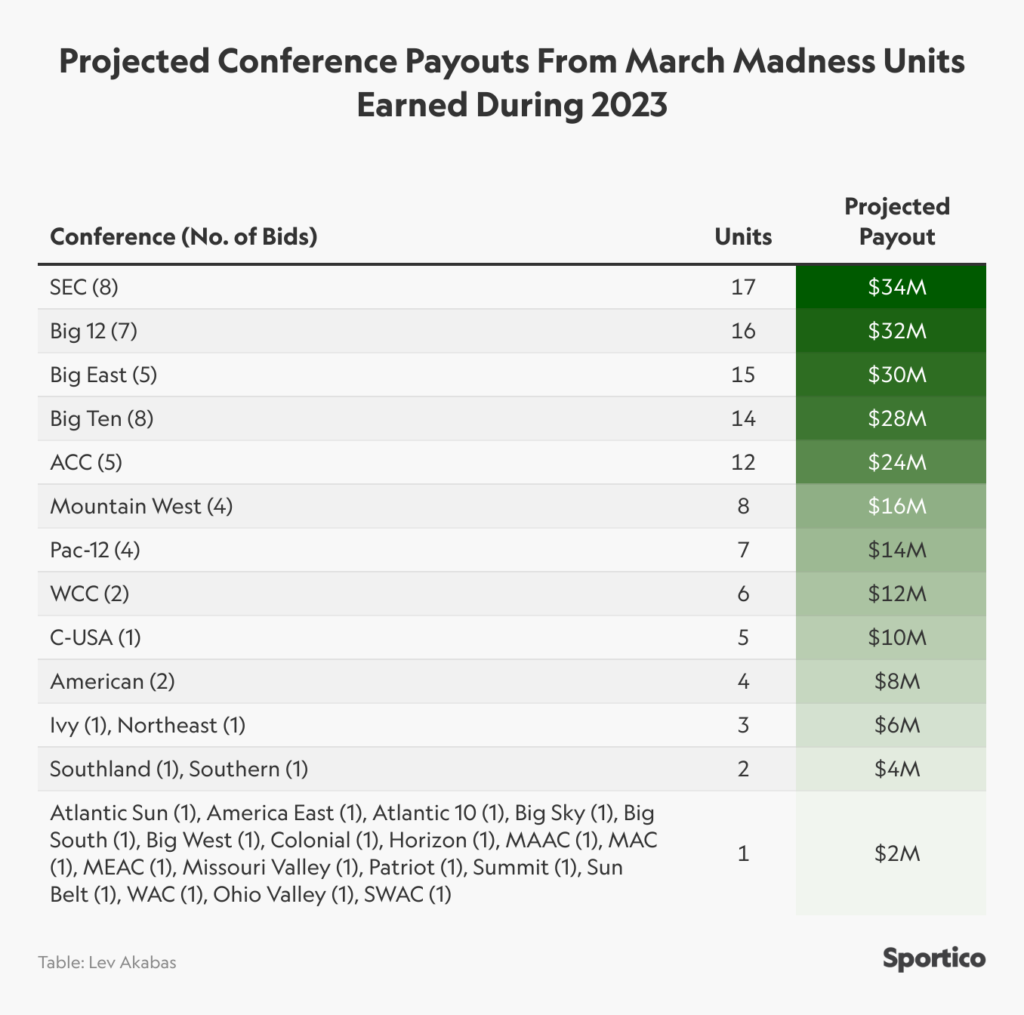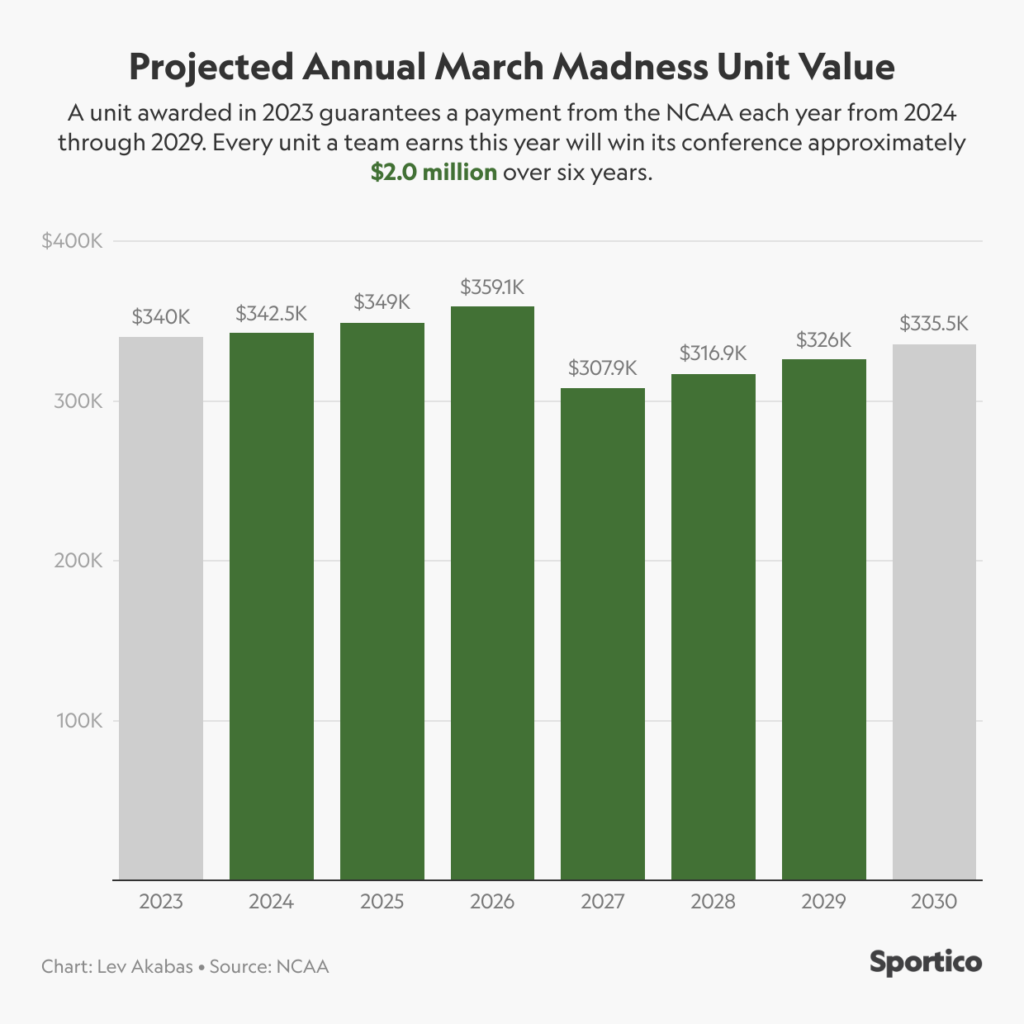The View from the US: March Madness 2023, eliminated early, SEC nabs tournament high $34 million
April 6, 2023
While the rest of the world is focussing on the end of the English Premier League season and the IPL, over in the States, March Madness has been topping the headlines for the last month. In this article we find out from people on the ground how it went down.
An SEC team won’t win the NCAA men’s basketball tournament, but the league will eventually take home roughly $34 million from its March Madness success, more than any other conference.
That’s because of the complicated way the NCAA distributes money during the tournament. Instead of paying schools for their success, the governing body distributes money directly to the conferences themselves. The amount of money each conference receives is determined by the number of tournament games each team plays prior to the final.
The SEC sent eight teams to this year’s tournament, more than anyone except the Big Ten, and those teams will end the tournament having played 17 games. Each game played will be worth roughly $2 million, according to Sportico’s calculations, paid out in annual installments through 2029, bringing the SEC’s haul to roughly $34 million. The Big 12 is next with 16 games played for $32 million, followed by the Big East with 15 games for $30 million.
The SEC’s haul is historic for multiple reasons. It’s been at least two decades since the SEC led all conferences in tournament earnings. It’s also just the second time in the past 20 years that the highest-earning conference failed to advance a single team out of the Sweet Sixteen—Arkansas, Tennessee and Alabama all lost one win short of the Elite Eight.

A quick summary of the NCAA’s tournament distributions: A team earns one “unit” for every game it plays before the championship, including the first four games held in Dayton. There are therefore 132 units awarded each tournament, and those units stretch over six years, generating payments to each school’s conference in annual chunks.
The value of a unit changes each year, meaning the total payment for a 2023 win won’t be fully apparent until 2029. But the NCAA’s revenue and distribution guidance provides estimates, and Sportico calculates that each game played this year will be worth about $2,001,400. That starts with a unit payment of roughly $342,000 next year and ends with a unit payment of roughly $326,000 in 2029 (the value eventually goes down because the canceled 2020 tournament concentrated payments for the following six years).

Because there is no unit award for the championship game, this year’s haul is fully set. The Mountain West, led by Final Four participant San Diego State, finished sixth at $16 million. Conference USA sent just one team to the tournament but will earn $10 million thanks to FAU’s surprise run.
The NCAA encourages its conferences to share their tournament money evenly, and most of them do. That means that the Columbia Lions, who went 2-12 in Ivy League play, will receive the same amount as 2023 upset specialist Princeton, a 15-seed that won twice before falling in the Sweet Sixteen. Not every league, however, cuts the unit money into even chunks. Gonzaga has won a vast majority of the WAC’s tournament money in recent years, and has enough in-conference leverage to command a higher share.
One more interesting wrinkle this year—conference realignment. UCLA, which made it to the Sweet Sixteen, is leaving the Pac-12 for the Big Ten. Texas, which lost in the Elite Eight, is leaving the Big 12 for the SEC. The units they earn, however, stay with their current conferences, meaning a number of schools are earning money that they won’t fully realize. (It’s unclear how their new conferences will treat them for distributions earned before they joined).
In the women’s draw, the SEC and ACC have already played 19 games each, with a few more units left to be earned. The NCAA, however, distributes no money based on teams’ success in the women’s March Madness.
By Eben Novy-Williams and Lev Akabas
With assistance from Emily Caron.
March 25: Players Still Adapting to New Wilson Ball
March 24: UConn Women Beat Football Team in Ticket Cash
March 23: FAU’s Dusty May Earning Bonuses and Job Attention
March 21: Financial Upsets Erase Chalk in Women’s Bracket
March 20: Biggest Financial Underdog Is… Princeton?
March 19: Princeton’s Ivy Peers Score NCAA’s Most Valuable Wins



